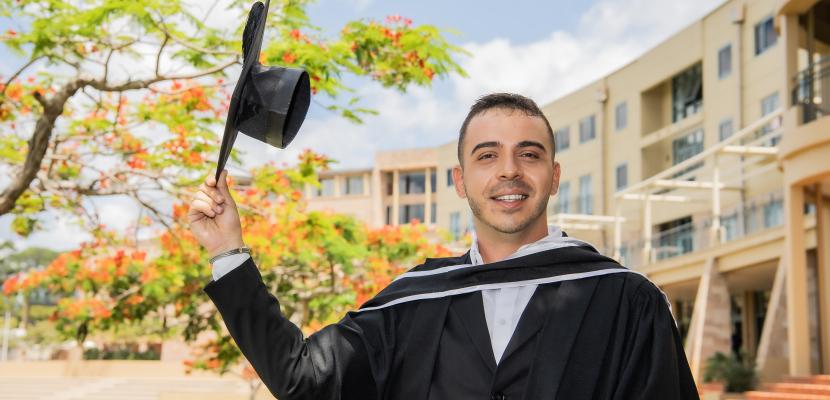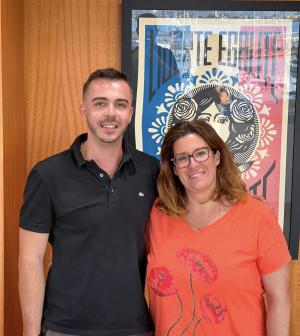
Master of Communication graduate Maxim Banck is off to a flying start in his quest to enter politics, securing a role with one of New Caledonia’s most experienced politicians.
Mr Banck is a communications advisor to Sonia Backès, President of the Southern Province of New Caledonia and a former French Secretary of State for Citizenship.
It is a job that exposes him to the highest levels of government, managing social media, arranging press conferences and participating in meetings.
When Mr Banck returns home from his graduation ceremony at Bond University he will follow the visit of French Defence Minister Sébastien Lecornu for the South Pacific defence ministers' summit in Noumea, attended also by Australia's Defence Minister Richard Marles.
“There, I'll oversee the political communications for Sonia Backès during this significant event," he said.
"It is definitely an exciting job, particularly as we embrace New Caledonia's choice to stay French. With this, there's a multitude of changes to enact and vast development opportunities within this evolving political environment."
The 25-year-old was born in France but moved to the French territory at the age of 10 when his parents decided they wanted a sea change in the South Pacific. His childhood was idyllic.
“We used to spend the weekend with friends on boats, going to small islands,” Mr Banck said.
“I used to practice horse-riding and two hours outside of the capital Noumea it is like the American west with cowboys - French cowboys. It was a lovely childhood.”
Mr Banck was drawn to Bond University after learning about the achievements and experiences of alumni in New Caledonia.

He was already familiar with the Gold Coast which had been a regular family holiday destination and initially studied a Diploma of Communication, then a Bachelor of International Relations.
Mr Banck returned to New Caledonia and took a role as a communications officer in the Southern Province Government but decided to embark on further study at Bond, this time for a Master of Communication.
The specialisation helped land him his current job, one he hopes to expand on by entering politics himself.
“I’m 25 so I’m using this time to build my opinions around politics and more globally around communication in the political arena,” he said.
“I don’t know whether one day I’ll have the opportunity (to get into politics), but definitely that's something I have in mind.”
Mr Banck said he was looking forward to catching up with fellow alumni at graduation.
“My time at Bond will touch me for the rest of my life,” he said.
“I met some of my best friends and I learned so much through the small classes where the teacher can actually answer all your questions.
“I got opportunities like going to the International Model United Nations conference in New York, meeting UN delegations, ambassadors, and even France’s permanent security council member.”

